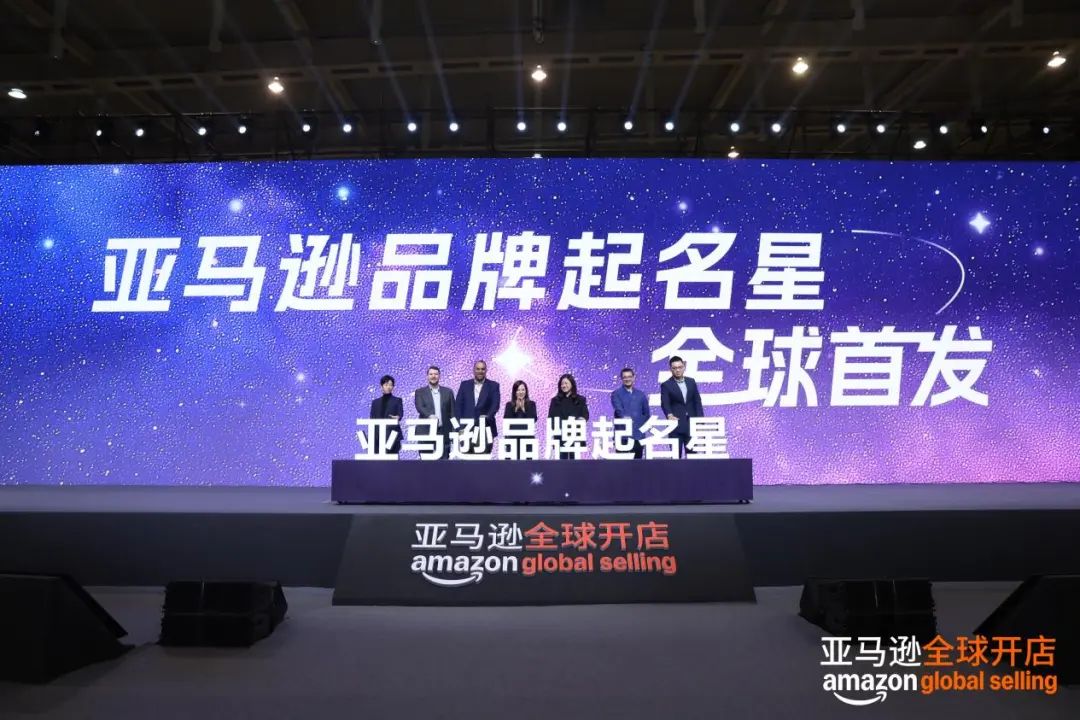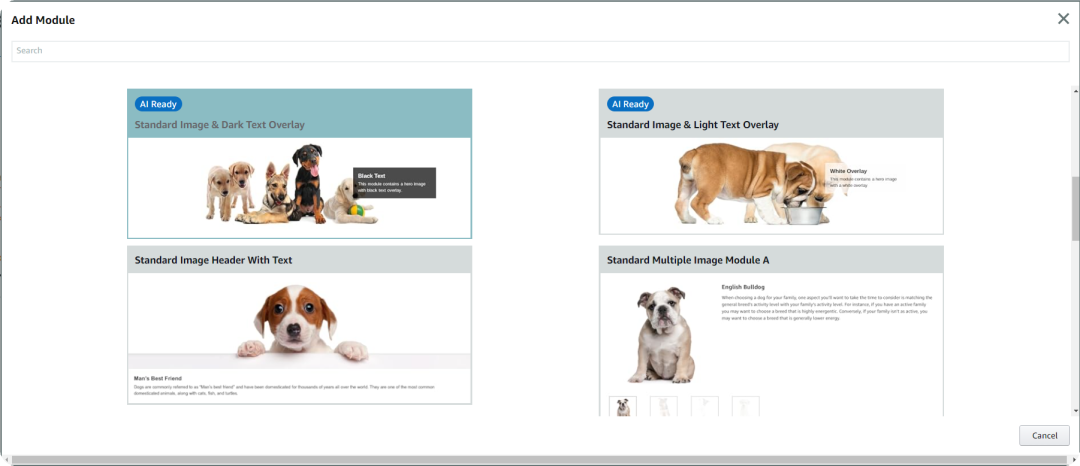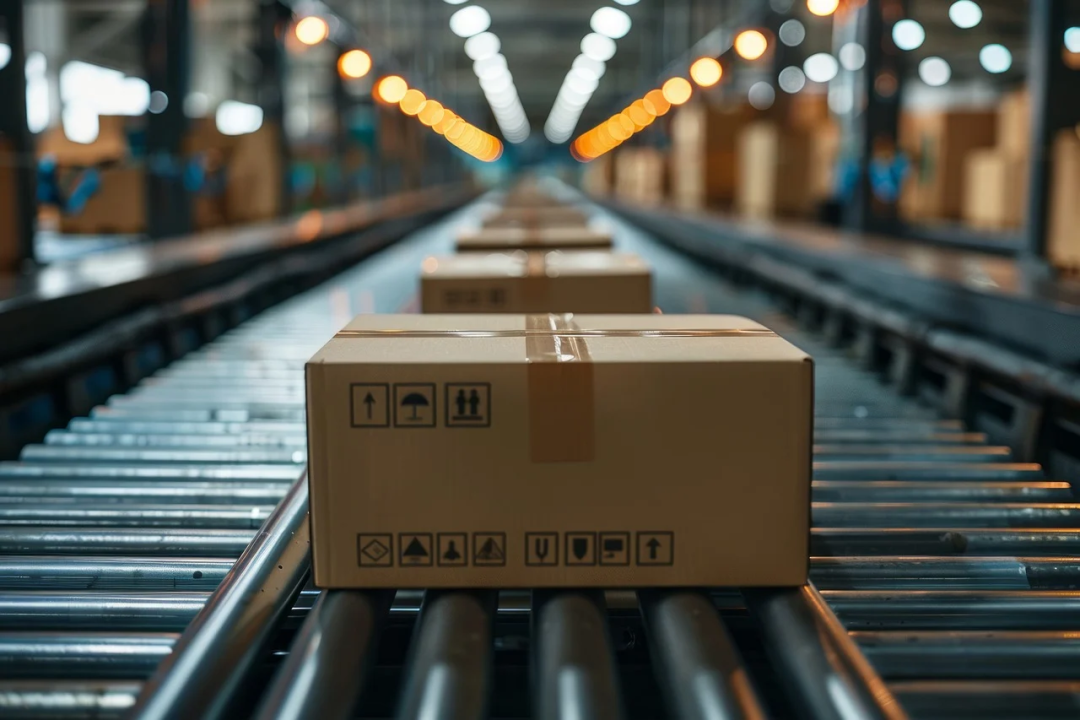Those Embracing AI in Cross-Border E-commerce Are Already Ahead of the Curve
![]() 12/20 2024
12/20 2024
![]() 477
477

Author | Xiaoyun
In the new era of "Great Navigation," global cross-border e-commerce has undergone revolutionary transformations:
It is evolving from product exports to brand exports, making the fine-tuning of operations a necessary skill for the new generation of sellers.
To compete internally, the importance of brand competitiveness is increasingly prominent. In a previous article, "The Path to Growth for Cross-Border Brands: From Single Role to Multi-Party Win-Win," Xiaguangshe mentioned that Chinese cross-border enterprises have embarked on their journey towards brand growth. Enhancing core competitiveness for sellers hinges on better cost reduction, efficiency enhancement, product refinement, and establishing brand reputation.
Brand building is a tedious and long-term endeavor. Fortunately, with the advent of the intelligent era, AI is playing an increasingly significant role in fine-tuning cross-border e-commerce operations and fostering brand creativity. Moreover, AI surpasses humans in efficiency. Thus, those who have adopted AI in cross-border e-commerce are already ahead of the curve.
At the recently held Amazon Global Selling Cross-Border Summit, Amazon Global Selling not only announced its business strategy focus for 2025 but also introduced seller assistant Amelia, consumer assistant Rufus, and Gen AI tools to support sellers in efficiently building their brands, reshaping cross-border e-commerce operations, and enhancing shopping experiences.
As a result, AI + cross-border e-commerce has become a potent tool for brands aiming for global success and long-term viability. An era deeply reshaped by AI in cross-border e-commerce is approaching.

For those in cross-border e-commerce, December is the pinnacle of AI + cross-border e-commerce.
In the realm of AI, OpenAI stands out. On December 5, OpenAI announced 12 new product launches over 12 days and introduced the AI video tool - Sora. This version of Sora can generate AI videos based on user preferences by setting shots, inputting video instructions, selecting styles, aspect ratios, durations, and other commands. This significantly reduces video production costs.
Then, from December 9-12, the 10th Amazon Global Selling Cross-Border Summit was held in Nanjing. Addressing the genuine needs of Chinese brands aiming for globalization, Amazon provides comprehensive AI functionalities, including the Amazon seller assistant Amelia, Amazon Brand Name Generator, Generative AI Listing creation tools, and A+ Gen AI.
For cross-border e-commerce entities targeting overseas markets, these tools are invaluable. For instance, the Generative AI Listing creation tool assists sellers with text translation, keyword extraction, product detail page writing, market research, etc. Image and video AI tools help sellers generate marketing videos, reducing content production costs while significantly enhancing product selection and testing efficiency.
To date, many cross-border e-commerce enterprises have proactively seized the opportunities presented by AI. Anker Innovation has stated that the company has applied AI to numerous efficiency-enhancing and creative tasks, exploring various product implementations. Tomtop has applied AIGC such as Chat GPT to multiple aspects, including customer service, copywriting, visual content generation, and product development. Huakai Yibai actively applies AI technology in intelligent copywriting, intelligent customer service, and intelligent procurement...
Various phenomena indicate that going global has become one of the most widespread applications of AI.
The value brought by AI to sellers is also immense.
Taking the writing of product listing detail pages as an example. Crafting product listing details has always been a headache for sellers. Sometimes, if the listing's relevance is not high enough, spending more on advertising budgets will not yield traffic and exposure. Despite abundant tutorials and guides, writing listings requires a precise understanding of the local market and substantial practical experience, which remains challenging for many sellers and operators.
In September 2023, Amazon introduced the Generative AI Listing creation tool for the first time. This tool only requires sellers to provide a product image or URL to generate titles, product descriptions, five-point descriptions, product attributes, etc., significantly improving sellers' operational efficiency.
Some sellers who have used this feature commented that the text level of Amazon's AI copywriting surpasses that of many humans. Furthermore, since this is an AI function launched by Amazon itself, the generated listings can better align with Amazon's search and recommendation algorithms.
By June this year, since the launch of the product detail page function with generative AI, over 650,000 sellers globally have used this tool.
It can be said that the first batch of cross-border individuals to adopt AI are already ahead of the curve.

In fact, over the past two years, there has been an increasing number of AI tools specifically tailored for cross-border e-commerce. From copywriting and image design to SEO optimization, email marketing, customer service communication, to product selection strategies and advertising marketing... Nowadays, AI tools cover all aspects of the cross-border e-commerce industry, encompassing the entire industrial chain.
Currently, sellers' use of AI is no longer an experiment from 0 to 1 but a pursuit of growth and enhancement of overall operational efficiency from 1 to 100.
However, just as people often complain that AI is not intelligent enough, AI tools for cross-border e-commerce are not perfect either and present many challenges. Many sellers believe that many AI tools currently on the market are still immature and unstable, posing new difficulties in practical use.
To better address the difficulties sellers face in actual operations and free them from cumbersome processes, allowing them to focus more on innovation and brand building, a series of AI tools that more accurately pinpoint sellers' pain points and meet their deeper needs are emerging.
One notable aspect is AI tools for brand naming, brand creativity, and brand mindset building.
Xiaguangshe has observed that many top-selling cross-border e-commerce enterprises on the Best Seller list boast impressive sales performance, but their brand names and slogans still adhere to Chinese linguistic habits and do not align with overseas cultural environments. If a brand were given life, its name would be its soul, embodying the brand's temperament and personality.
Addressing this need, Amazon recently introduced the "Amazon Brand Name Generator" product to sellers. This feature is currently available to sellers on the US site.
The Amazon Brand Name Generator offers three key advantages: firstly, localized naming creativity, where sellers can generate creative names that resonate with overseas consumers' cultural context and expression habits, enhancing the brand's affinity and identity in consumers' minds; secondly, efficiency, saving time and effort, with brand naming ideas available in just a few seconds; and thirdly, better brand protection through direct connection to the IP accelerator, avoiding detours in trademark registration and ensuring compliant trademark registration, thereby protecting brand rights.

Amazon Brand Name Generator Launch
In practical operation, the "Amazon Brand Name Generator" will use advanced algorithms to combine words, generate variations, and create brand names that are easy to recognize and remember, aligning with sellers' business needs. After each submission, Amazon Brand Name Generator will provide six options, each accompanied by an explanation of the reasoning behind the naming. If not satisfied, sellers can repeat the process until they find the perfect brand name.
This feature can help sellers aiming for globalization better understand consumers and establish a good and lasting "first impression" in consumers' minds.
With a good brand name, the next step is brand mindset building, requiring sellers to create distinctive brand images and establish influence.
For Amazon sellers building brands, A+ pages with images and text can provide a superior detail page experience. However, creating high-quality A+ content is very time-consuming and costly, requiring substantial resource investment. Sellers have told Xiaguangshe that the cost of producing a high-quality A+ page ranges from $150 to $4,000. The high cost deters many brands from using A+ pages.
Addressing this pain point, Amazon has newly launched the "A+ Gen AI" feature on A+ pages and Premium A+ pages on the US site. Building upon original copywriting generation, it includes image generation functionality, allowing sellers to generate compelling copy and images that align with Amazon consumer habits in one go. Notably, this feature is free for Amazon sellers to use, and there is no need to worry about image copyright risks.

The "Gen AI" feature is only available in specific basic A+ page modules and Premium A+ page modules.
According to data released by Amazon, over 70% of global brands currently use A+ pages, with A+ content typically resulting in a 10%-20% sales increase on average.


Product image and text pages generated through the A+ Gen AI feature
Amazon has also created the "AI Creative Lab," "AI Image Generation Tool," and "AI Video Generation Tool." Notably, the AI Image Generation Tool is already in use in modules such as "Sponsored Brands," "Sponsored Display," "Store," and "DSP," and sellers can directly access it on the page during use.

Image generated using the "AI Image Generation Tool (Beta)"
Additionally, AI's assistance in cross-border e-commerce has expanded from simple tools to intelligent decision-making. To allow more sellers to benefit from AI development, follow global brand market trends, and further deepen the transition from product exports to brand exports, Amazon further shared Amelia, the Amazon seller assistant, at this year's conference.
The beta version of Amelia, the Amazon seller assistant (Project Amelia), will soon support Chinese and be open for testing to some Chinese sellers. It is an all-around "sales assistant" based on generative AI, providing sellers with instant answers and suggestions. It also offers personalized insights and support based on the unique characteristics of different sellers' businesses.
Brand globalization is a lengthy process requiring sellers to deeply understand overseas cultural environments and possess strong brand marketing capabilities. With years of accumulation, Amazon possesses vast amounts of e-commerce data, enabling innovative AI tools to better serve sellers and provide more precise decision-making support and assistance for brands aiming for globalization.

In the global e-commerce market, AI is bringing revolutionary changes.
On the one hand, with the advent of the AI era, consumer behavior patterns and product preferences will be more easily captured and analyzed. Sellers can collect real-time consumer feedback, respond more quickly, and make timely product optimizations and strategy adjustments. Meanwhile, customized e-commerce services catering to the personalized needs of different consumer groups may gradually become a reality.
On the other hand, multimodal AI will also assist in enhancing people's understanding and cognitive abilities of the world, helping cross-border merchants reduce compliance issues. In the past, many Chinese sellers encountered compliance issues when entering overseas markets due to unfamiliarity with local compliance regulations. From the perspective of trademarks alone, many brands have encountered irregularities such as infringement and invalidation due to registering overseas trademarks through non-compliant law firms, leading to the removal of their Amazon store privileges. Therefore, in addition to launching the "Amazon Brand Name Generator," Amazon also provides sellers with IP accelerator services to help them apply for trademarks compliantly.
Moreover, the emergence of AI intelligence is ushering cross-border e-commerce into the intelligent era. AI + cross-border e-commerce connects global localized creative resources and ecosystems with China's supply chain, innovating supply-side offerings and global localization upgrades based on overseas demand. Additionally, by predicting market trends, AI can help enterprises proactively manage inventory to avoid overstocking.

Image source: pixabay
When AI is more deeply integrated into the entire operational and service process of cross-border e-commerce, the efficiency improvement and results it brings will far exceed human capabilities.
Bernard Marr, an American futurist, predicts that "augmented work" is one of the major trends in the future development of artificial intelligence. Today's AI tools already possess the functions of integration, generation, and simple creation. In the future, with the mastery and application of AI technology, people will have more time to engage in creative work.
"A workman must sharpen his tools if he is to do his work well." Embracing AI actively and improving seller operational efficiency is an inevitable choice for every seller aiming for brand building and growth in the future.
As AI disrupts the e-commerce market and brand marketing, cross-border e-commerce is swiftly advancing into the era of AI.






